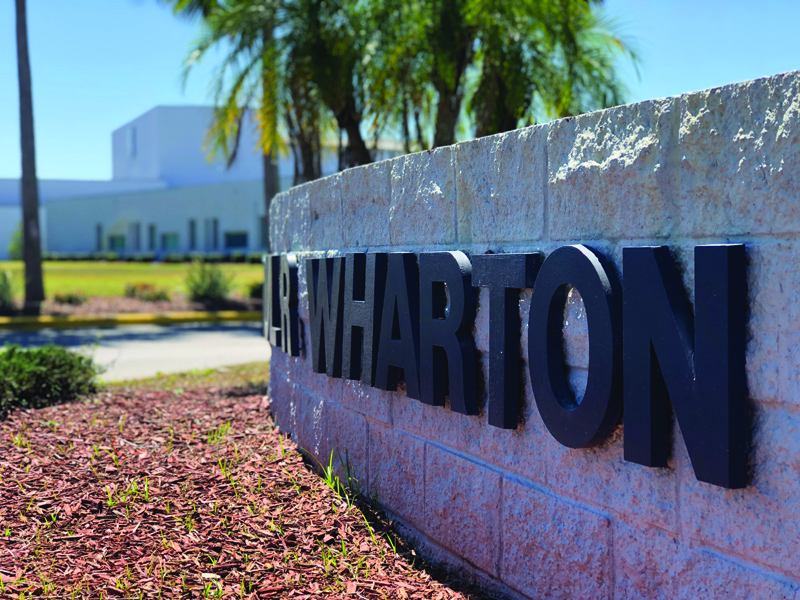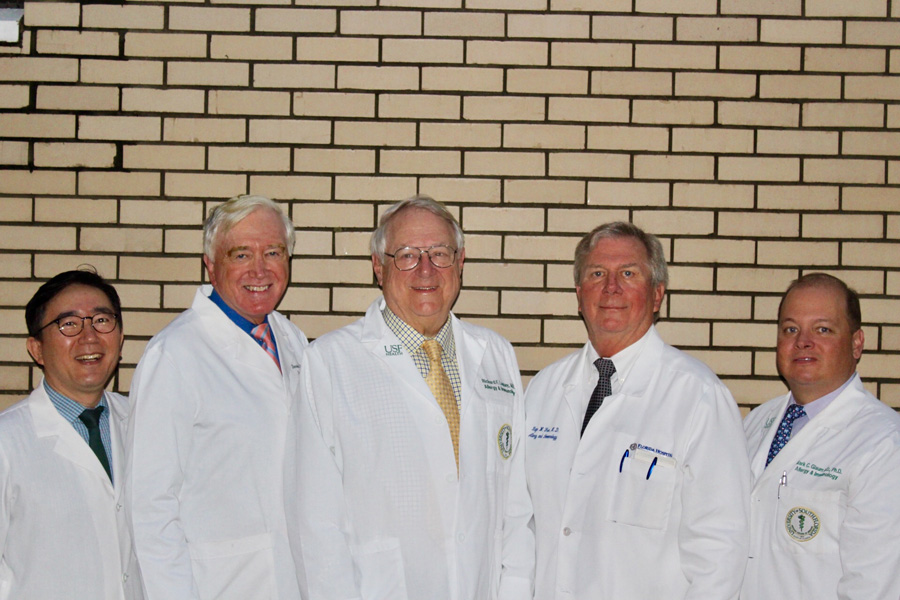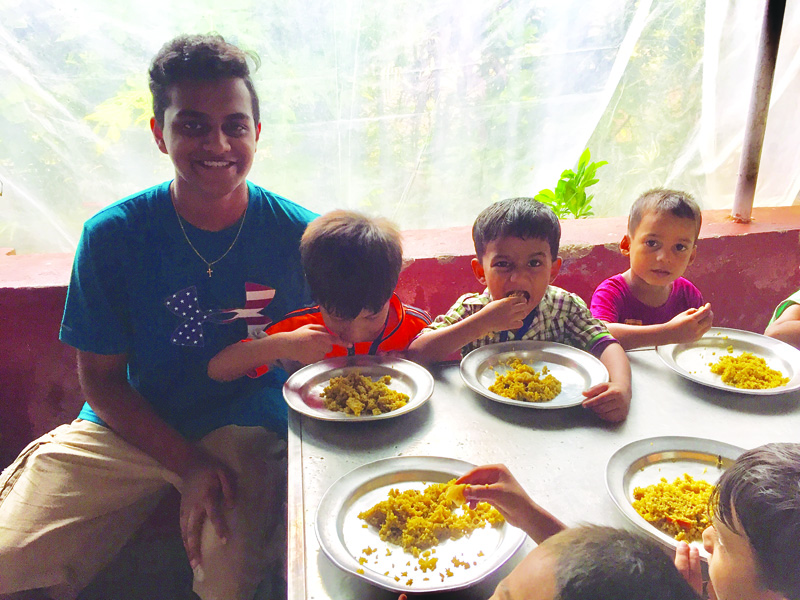 A slew of negative press — following reports of rampant fighting that has led to 67 arrests at New Tampa’s Wharton High this school year — has Hillsborough School District officials and Wharton’s staff, as well as parents, fighting back.
A slew of negative press — following reports of rampant fighting that has led to 67 arrests at New Tampa’s Wharton High this school year — has Hillsborough School District officials and Wharton’s staff, as well as parents, fighting back.
Wharton held a meeting in the school’s auditorium on February 19, drawing hundreds of concerned parents and local residents. A team of experts from the district is trying to determine the root causes of the problems – and find solutions.
The school’s image has taken a hit.
“It’s frustrating,” admits principal Brad Woods, who has led the school since 2008, “because it’s not an accurate picture of what Wharton is. It skews the general perception that things are out of control here on campus, and that’s not the case. We’ve got kids in class, kids learning, kids doing great things.”
Wharton’s proverbial black eye comes from widespread media reports of fights, some fueled by an Instagram account called “Wharton Fights,” which has since been taken down.
On February 8, a phone call from Woods to parents indicated the fights were the result of “a small number of students causing a disruption” and “neighborhood issues or posts on social media.”
While a large number of fights broke out on the campus in early February, it has been relatively calm the last few weeks. Since the community meeting on Feb. 19, Woods says, “We’ve had three (minor) altercations.”
He says all of the incidents were isolated and often happened because “kids are impulsive.” Describing the most recent incident at the school, he explains, “Two girls had a three-second conversation, one girl tried to walk away and the other grabbed her. It happened about 15 feet from [Wharton’s school resource officer] Deputy Williams. It’s not a lack of supervision.”
While Woods believes that media reports make Wharton look worse than it is, he is quick to ask, “Are there things we need to do better and improve?,” and just as quick to answer, “Yes.”
Making Changes
“We as a district are there, in full force,” says Dr. Anna Brown, Area 3 superintendent, who oversees Wharton and all of the New Tampa-area public schools.
Over the last several weeks, she and a team of district employees have been listening to students, parents and teachers to get to the root of the problem.
While she won’t name the experts, she says they are all district employees — including principals of other schools — who are investing in Wharton in addition to their regular day jobs. Each team member focuses on a certain aspect — including student safety, stakeholder engagement, student relationships and data monitoring, teacher leaders/professional development and administrative leadership. “These are people I have asked to join me (so we can) ‘turn the ship’ at Wharton,” she says. “They are doing double duty, (some) principals spending time away from their (own) schools and district employees finishing their jobs at night at home.”
She says the team members are seeing common trends and are implementing short-term solutions, such as facility maintenance and beautification, overall communication, restroom availability and cleanliness, scheduling adjustments (such as at lunch), increased adult/student interaction, and ensuring parking lot gates are closed and locked.
According to Brown, these and other short-term fixes set the groundwork for more long-term solutions, such as improving the school culture, engaging every student, providing rigorous content, and continuing to discuss zoning and boundaries.
“When I’m at Wharton, and I walk the campus and sit with kids at lunch, I don’t see a chaotic environment or horrific behaviors,” Brown says. “What I see are things that need to be fixed, such as overall school pride. I also see a supportive student body who want students who care about the school to stay focused and others to be dealt with by administrators.”
She also points her finger at another cause: “Kids got caught up in social media.”
Social media, however, is one way some parents have tried to combat some of the negativity surrounding the school.
Kristie Scism, whose son and daughter attend Wharton, says that when news of the arrests began to spread among parents, many other parents reached out to her with their questions. She thought an easy way to communicate with the group of parents would be through Facebook, so she started a group through the website.
“People invited people who invited more people,” she says, “and it quickly grew to more than 400 members. I thought about deleting the group, but instead I’ve been trying to think about how to keep the momentum rolling. I learn so much from this page.”
Over the past few weeks, the Facebook group, now called “Wharton High School Betterment,” has been used to spread the word about positive things happening at the school, such as members of the wrestling team qualifying for the State tournament, students on the speech and debate team qualifying for a national competition and the school’s LSA Theatre Troupe qualifying for the State level competition.
“Wharton Betterment” also been used for requesting volunteers from the community for help with the school’s beautification club, and showed off some before-and-after photos from the beautification club’s efforts.
This may support one area Woods hopes to improve — for more Wharton students to feel ownership and connection to the school.
“We have students from all parts of our attendance boundaries that don’t feel a sense of connection,” Woods says. “There are kids who live here in New Tampa and kids who live in the Busch Gardens area who have great relationships with teachers, and others who struggle to connect.”
Woods says a primary goal is to ensure all students feel safe on campus.
“There are things we need to do better to create a better sense of community in our school for kids to know this is a safe place for them,” he says, “and that violence/physical altercation is not the solution.”
This includes an effort to be sure students know about peer mediation and who to go to if they have a problem.
Many Wharton parents hope these efforts will lead to lasting change. “In my years, I’ve seen that there are seasons where there are a bunch of fights, then they get a handle on it and it’s quiet,” says Scism. “In terms of the fights, there’s kind of a crescendo. I don’t think we’ll see a lot of fights for the rest of the year because it reached its eruption phase.”
Scism is disheartened that it feels like her kids and other students are desensitized to the fighting, but says her children have never felt targeted or afraid. “Right now neither of my kids are affected by it,” she says, “but if we continue to have major fights every year, someone eventually is going to be in the wrong place at the wrong time.”
Holly Garemore is another mom who says she stays on top of what’s happening at Wharton by participating in the school’s Parent Teacher Student Association (PTSA), and that, “my kids both feel safe there, and say it’s completely blown out of proportion, so I listen to them, too.”
Her younger son, Max, a freshman, was involved in an altercation this school year that she says was unprovoked, “and I was impressed with how the administration handled it. The student who hit him was arrested, even though it was her first time being in trouble at the school.”
Same Fights But More Arrests?
Some say that might be the cause of the high number of arrests.
“I don’t know what other schools do,” says Woods, “but a few years ago, we made a decision that a five-day suspension is not a strong enough consequence for fighting.” He explains that there is some leeway between schools and law enforcement to decide when to arrest students. At Wharton, he says, when students break the law, they will be arrested.
Brown agrees. “I do believe that the larger number of arrests at this school are related to a desire to squelch anything that’s going on,” she says. “There have been things that students have been arrested for, that kids are not arrested for at another site.”
She says that of the 67 arrests, 15 students were arrested at one fight. All 67 students have been recommended for a change in placement, so that they do not return to Wharton for at least one semester or one year. Many times, she explains, if students successfully complete the process, they return to a public school other than the one they left.
Although 67 is a concerning number, both Brown and Woods emphasize it’s just a small portion of a school that has more than 2,400 students. “We’re way too focused on a small population when there’s a large population that is having amazing high school careers,” says Brown.











